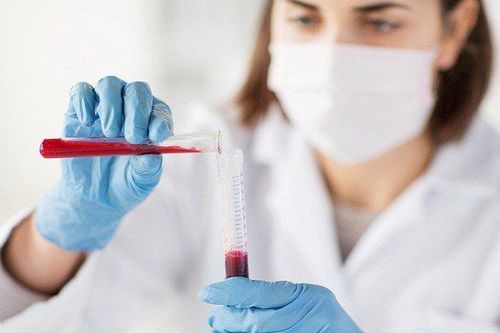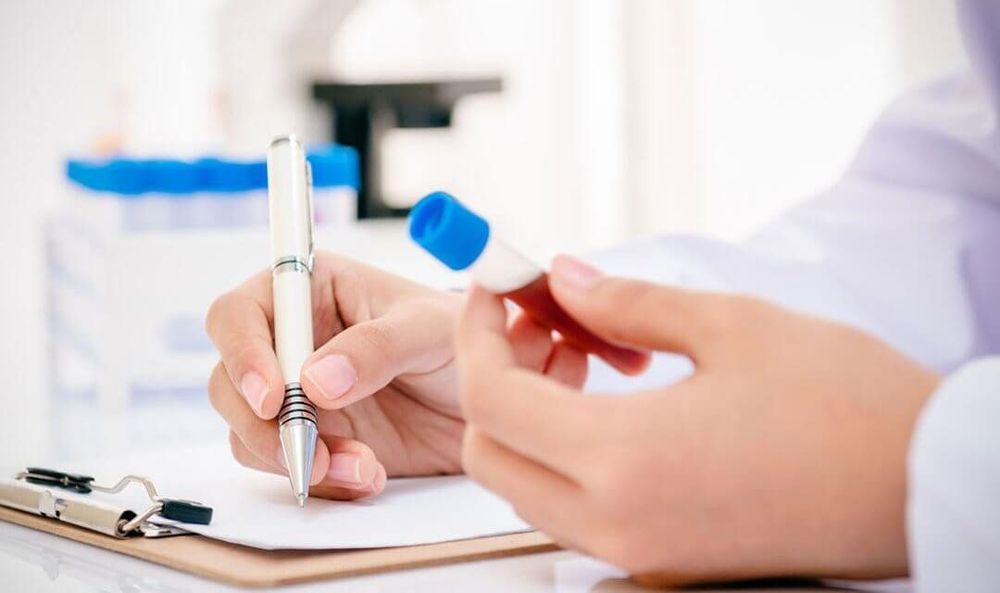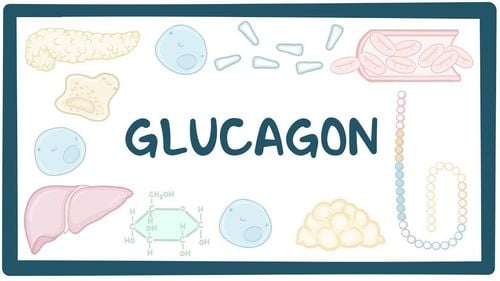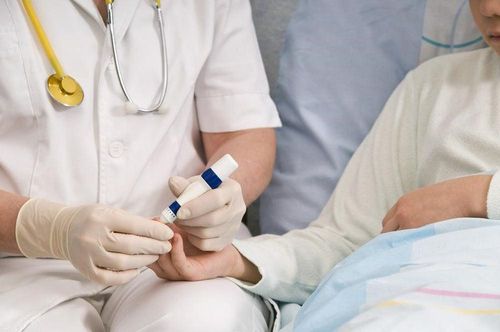This is an automatically translated article.
The article was professionally consulted by Doctor Do Thi Hoang Ha - Doctor of Biochemistry - Laboratory Department - Vinmec Hai Phong International General HospitalGlucose is a very important compound for the body, a major source of energy for all cells of the body as well as human activities. The blood glucose index helps us assess the blood glucose concentration, thereby serving as a basis for diagnosis, monitoring and treatment of diabetes.
1. What is Glucose?
Glucose is the scientific name of sugar - a very familiar spice in everyday life. The body needs glucose to function. In energy metabolism, glucose is the most important source of raw materials in all organisms for the production of energy during cellular respiration. When there is a lack of glucose, the organs are not supplied with enough energy, leading to dizziness, lightheadedness, chills, even fainting, a phenomenon called hypoglycemia, which usually occurs when hungry.In most daily foods there is glucose, especially some foods such as starch, fruits are rich in glucose. Glucose is the body's main and direct source of energy, stored in the liver in the form of glycogen, a component involved in the structure of cells (RNA and DNA) and some other special substances (Mucopolysaccharid, heparin). , hyaluronic acid, chondroitin ...). Glucose is used to make the energy necessary for life, a process that takes place in cells. Cellular use of glucose is dependent on insulin action of cell membranes (with the exception of brain cells, nerve tissue, blood cells, renal medulla, and lens). Digestive enzymes break down glucose from food. Glucose is burned at the cells, creating energy for the body and CO2, H2O.

2. What is the normal blood glucose level?
Blood glucose measurement is also known as the glycemic index or blood glucose concentration. This indicator indicates the amount of glucose present in the blood. The amount of glucose in the blood of each person is different and can vary from minute to minute, hour to hour. Based on blood glucose levels, diabetes can be diagnosed.Normal blood glucose levels in the morning (without eating or drinking - on average after at least 8 hours of fasting) range from 73.8 mg/dl to 106.2 mg/dl (equivalent to 4.1 mmol/l – 5.9 mmol/l). About 1-2 hours after eating, blood glucose levels will increase, but still below the threshold of 126 mg/dl (7.0 mmol/L). If the blood glucose level is higher than the above level, the patient is likely to have impaired glucose tolerance. If blood sugar at any time is greater than 200 mg/dl (11.1 mmol/l), diabetes can be diagnosed.
3. Methods of measuring glucose in the blood
Determination of blood glucose levels is usually indicated when diabetes mellitus is suspected. The test results will show the amount of sugar in the blood at the time the sample was taken. Typically, the test sample will be taken on an empty stomach, when the patient has fasted for 8-10 hours, or blood can be drawn at a random time.Blood is taken from a vein and immediately transported to the laboratory. If the blood glucose level is in the normal range as stated above, then the body is healthy, if it is higher, it means that you may have impaired glucose tolerance or diabetes.
It should be noted that in pregnant women, the blood sugar index is often lower than normal, at the threshold of 70.9 mg/dl ± 7.8 (3.94 mmol/l ± 0.43) at fasting.

4. Why is it necessary to measure blood glucose?
With that said, glucose is very important for the body. However, if blood glucose levels are too high, it can cause some health dangers such as:Decreased insulin secretion. Pancreas must be overworked, vulnerable; Increases the likelihood of hardening of the blood vessels, atherosclerosis, leading to diseases of the liver, kidneys, cardiovascular... such as: kidney failure, myocardial infarction, stroke, retinal complications... Blood glucose testing plays an important role in diagnosing diabetes, monitoring treatment along with other tests and clinical examinations. Therefore, if there are signs of diabetes disease (thinning, rapid weight loss, frequent urination, eating a lot, drinking a lot), the patient should soon seek a reputable medical facility to perform a glucose measurement test. blood and combined with other clinical examinations to have a timely treatment plan, to prevent dangerous complications that may be encountered due to the disease.
Vinmec International General Hospital is one of the hospitals that not only ensures professional quality with a team of leading medical doctors, modern equipment and technology, but also stands out for its examination and consultation services. comprehensive and professional medical consultation and treatment; civilized, polite, safe and sterile medical examination and treatment space. Customers when choosing to perform tests here can be completely assured of the accuracy of test results.
Please dial HOTLINE for more information or register for an appointment HERE. Download MyVinmec app to make appointments faster and to manage your bookings easily.














